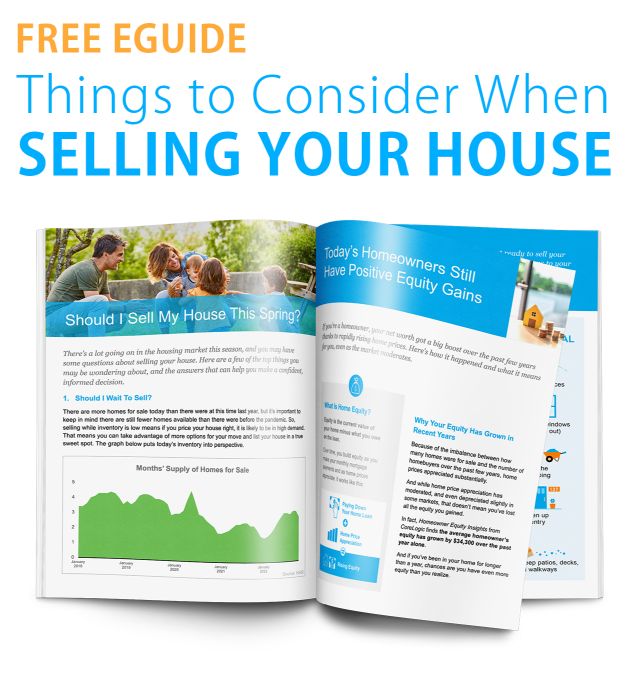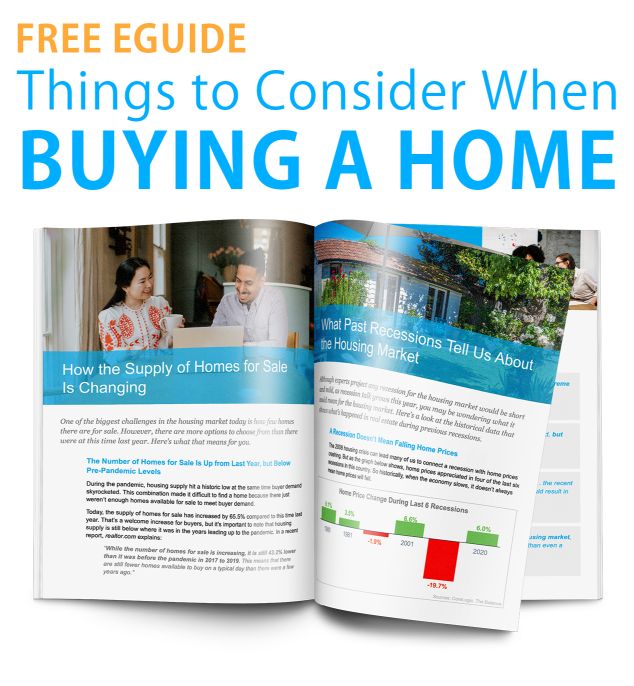The past two years have taught us the true value of homeownership, especially the stability and the feeling of accomplishment it can provide. But homeownership has so much more to offer. Here’s a look at a few of the non-financial and financial benefits of owning a home. If you’re looking to buy a home today, think about all the ways homeownership can impact your life.
Homeownership Has Impactful Personal and Emotional Benefits
Owning your home gives you a significant sense of pride because it’s a space that is truly yours. And as a homeowner, you can customize your home to your heart’s desire. Having a space you’ve put your stamp on enhances the pride and sense of ownership you may feel.
And that sense of ownership can extend beyond your shelter to help create social, community, and civic benefits as well. That’s because the average homeowner stays in their home for longer than just a few years. That means you’ll naturally feel a stronger connection to the community around you the longer you live there. This can help you experience a greater sense of belonging and a greater stake in your community as a whole. As the National Association of Realtors (NAR) says:
“Living in one place for a longer amount of time creates an obvious sense of community pride, which may lead to more investment in said community.”
Owning a Home Is a Significant Step Toward Financial Stability
In a financial sense, homeowners benefit from home price appreciation, equity gains, and having a shield against some of the effects of inflation. These benefits can have a big impact on your life. As you gain equity through home price appreciation and paying down your mortgage, you build your net worth. And in times of inflation, your 30-year fixed-rate mortgage can help you stabilize one of your largest monthly expenses for the duration of your loan.
Lawrence Yun, Chief Economist for NAR, explains how you can start to see these lasting effects of homeownership as soon as you make your purchase:
“Owning a home continues to be a proven method for building long-term wealth. . . . Home values generally grow over time, so homeowners begin the wealth-building process as soon as they make a down payment and move to pay down their mortgage.”
Knowing you’ve made a good investment soon after your purchase is powerful. And that may give you confidence in your decision to buy a home.
Bottom Line
The benefits of owning a home are foundational. As a homeowner, you can feel proud of the space you call home and know you’ve made a sound financial investment. To learn how homeownership can help you, let’s connect to start the conversation today.




















![The Difference Between Renting and Owning [INFOGRAPHIC]](https://files.simplifyingthemarket.com/wp-content/uploads/2022/02/24125839/20220225-KCM-Share-150x150.png)




![Key Terms for Homebuyers [INFOGRAPHIC]](https://files.simplifyingthemarket.com/wp-content/uploads/2022/03/09163232/20220311-KCM-Share-150x150.png)

![Key Terms for Homebuyers [INFOGRAPHIC] | Simplifying The Market](https://files.simplifyingthemarket.com/wp-content/uploads/2022/03/09163150/20220311-MEM.png)
![Supply and Demand in Today’s Market [INFOGRAPHIC]](https://files.simplifyingthemarket.com/wp-content/uploads/2022/03/03164833/20220304-KCM-Share-150x150.png)
![How Remote Work Impacts Your Home Search [INFOGRAPHIC]](https://files.simplifyingthemarket.com/wp-content/uploads/2022/02/03134354/20220204-KCM-Share-150x150.png)
![Why Your Home Inspection Matters [INFOGRAPHIC]](https://files.simplifyingthemarket.com/wp-content/uploads/2022/01/27130250/20220128_KCM-Share-150x150.png)
![Americans Choose Real Estate as the Best Investment [INFOGRAPHIC]](https://files.simplifyingthemarket.com/wp-content/uploads/2022/01/20142536/20220121-KCM-Share-150x150.png)




